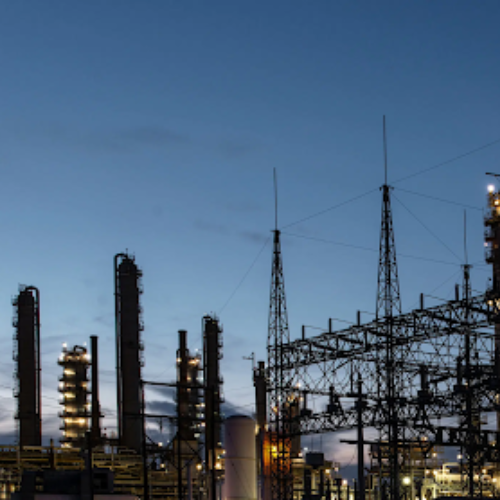The European Union (EU) has been trying hard to cut its energy ties with Russia since the invasion of Ukraine began nearly three years ago. Despite numerous sanctions, Europe still buys a significant amount of oil and gas from Moscow, helping to fund Russia’s war efforts. Now, Poland is stepping up to lead a renewed push to tighten these restrictions.
Starting in January, Poland will take on a powerful role, steering EU policies for six months as it assumes the presidency of the Council of the EU. With this responsibility, Poland plans to challenge the EU to eliminate loopholes in energy sanctions and reduce its reliance on Russian energy sources like liquefied natural gas (LNG) and nuclear technology.
Loopholes Keeping Russian Energy Flowing
Even though the EU has tried to cut ties with Russia, it has spent over €200 billion on Russian oil and gas since the war began. Sanctions, like the ban on seaborne crude oil imports, were meant to reduce this spending, but gaps in the rules allow energy to keep flowing into Europe. Purchases of certain fuels have even increased.
Russian LNG has been a particular problem. While there are sanctions preventing Russia from selling gas to Europe directly, Moscow finds ways to reexport it through other countries, sneaking it into European markets. Belgium and France are two major hubs for this trade, and they plan to implement tougher rules soon, making it harder for Russian LNG to pass through.
Freight Rates for Russian Oil Set to Increase Amid Sanctions and Winter Weather
There’s also concern about Russia breaking price caps imposed by Western nations on its oil sales. These caps limit how much Russia can charge for oil, but reports suggest they are being violated. For Poland and its allies, this raises the need for stricter enforcement of sanctions and better tracking of where fuels are coming from.
Poland’s Bold Push for Tougher Rules
Poland, one of Ukraine’s strongest supporters, wants the EU to do more to cut off Russian revenues. The Polish prime minister, a longtime advocate for sanctions, has criticized countries like Hungary and Germany for dragging their feet on tougher measures. Poland’s upcoming leadership of the EU Council is an opportunity to push for new restrictions.
Poland’s focus is on cutting EU imports of Russian LNG and stopping the use of Russian nuclear technology. The country believes that Russia is trying to dominate the nuclear energy sector just as it once did with oil and gas. One idea being considered is to block new joint projects with Russian nuclear companies, which would force EU countries to look elsewhere for their energy needs.
Russia Halts Gas to Austria, Europe Scrambles for Alternatives
However, not everyone agrees. Hungary, for example, has a deal with Russia’s Rosatom to expand its nuclear power plant and has refused to support any sanctions on the nuclear sector. This disagreement could make it difficult for Poland to push through tough new rules. A possible compromise is to stop new projects with Rosatom while allowing existing ones to continue, but even that faces resistance from Hungary.
Challenges Ahead for Sanctions
Even with Poland’s determination, the road to tougher sanctions is not easy. For any new measures to become law in the EU, all member countries must agree. Hungary’s opposition to stricter nuclear sanctions is just one hurdle. There’s also concern that Europe lacks a clear plan to end its dependence on Russian energy entirely. Instead, sanctions have been introduced slowly, reacting to Russia’s actions rather than aiming for a long-term goal.
Another factor is the possibility of increased competition from American LNG. The United States, which has been ramping up its gas exports, could provide an alternative to Russian fuel. EU leaders, including Poland, may explore this option to further cut ties with Moscow. However, it remains a balancing act, as the EU must avoid triggering a trade conflict with the U.S.
While sanctions have weakened Russia’s ability to fund its war, loopholes and disagreements within the EU mean that energy purchases are still a lifeline for Moscow. Poland’s leadership of the EU Council presents a fresh opportunity to change that, but it will require strong political will and cooperation across all member states.


